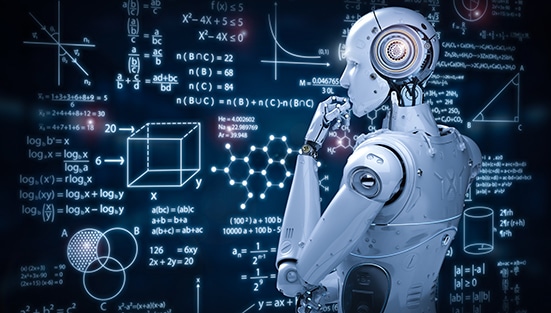Artificial intelligence (AI) and machine learning have advanced in ways that can only be described as revolutionary. From healthcare to finance, these technologies are reshaping industries. A significant catalyst to their advancement is the widespread use of open-source platforms. These platforms give developers the access and tools they need to innovate more quickly and effectively. For instance, Python Ray is a notable tool that enhances the efficiency and scalability of machine learning applications.
With open-source platforms like Python Ray, developers can focus on their projects’ creative and analytical aspects, knowing they have a reliable and versatile foundation on which to build. This is especially significant at a time when success depends on one’s capacity to handle massive datasets and carry out intricate calculations. The democratization of these tools means that even small teams can achieve significant breakthroughs without the need for extensive financial resources.
Benefits of Open Source Platforms
Open-source platforms offer numerous advantages, including cost savings, flexibility, and a diverse set of tools. They allow developers to build on existing frameworks rather than starting from scratch, which not only speeds up the development process but also fosters innovation by allowing for continuous improvement and collaboration.
The cost savings from using open-source platforms cannot be overstated. Companies can allocate funds to other critical areas, such as research and development or customer acquisition. Additionally, the flexibility to modify and adapt the code to meet specific needs means that proprietary software constraints do not limit developers.
Popular Open Source Platforms for AI and Machine Learning
Several open-source platforms have become industry standards for AI and machine learning development. Among the most widely used ones are Scikit-learn, PyTorch, and TensorFlow. These platforms provide comprehensive libraries, extensive documentation, and active community support, making them invaluable resources for developers.
For example, TensorFlow is well-known for its resilience and capacity to manage intricate calculations, which makes it perfect for extensive machine learning initiatives. PyTorch offers dynamic computational graphs, simplifying the process of building and debugging models. Scikit-learn, on the other hand, is renowned for its simplicity and efficiency in data mining and data analysis tasks.
The Role of Collaborative Communities
One of the greatest strengths of open-source platforms is their collaborative communities. Developers from around the world contribute to these projects, sharing their expertise and improving the code base. These collaborative efforts lead to more robust, reliable, and innovative solutions.
In addition to code contributions, these communities often provide invaluable documentation, tutorials, and forums where developers can seek assistance and share knowledge. This collective intelligence accelerates the learning curve for newcomers and fosters an environment of continuous improvement.
Embracing Data-Centric Approaches
In the realm of AI and machine learning, data is king. Open source platforms facilitate data-centric approaches, allowing developers to focus on acquiring and analyzing data to create better models. These platforms often support a variety of data formats and integration with other tools, streamlining the development process.
For example, Technology Review highlights how data-centric methodologies are becoming increasingly important in achieving superior results in AI projects. Leveraging vast amounts of data enables developers to train more accurate models and make more informed decisions. The capacity to manage and process data effectively will only become more important as it grows exponentially more.
Ethical Considerations
With great power comes great responsibility. As AI and machine learning technologies advance, it is crucial to address ethical considerations. Open-source communities often lead the way in establishing best practices and guidelines to ensure that these technologies are developed and used ethically.
Notably, an article in Forbes discusses how ethical AI development is becoming a priority for many organizations. Issues such as bias in algorithms, data privacy, and the societal impact of AI are key concerns that need to be addressed. By fostering transparent development processes and encouraging ethical practices, the open-source community can help mitigate these risks.
Future Trends
The future of AI and machine learning is bright, with ongoing advancements expected to continue rapidly. Open-source platforms will likely remain at the forefront of this innovation, providing the tools and communities necessary for pioneering new technologies and applications.
Emerging trends such as explainable AI, automated machine learning (AutoML), and the integration of AI with Internet of Things (IoT) devices are set to drive the next wave of technological breakthroughs. Open-source platforms will play a pivotal role in these developments, offering the flexibility and community support needed to explore these new frontiers.
Final Thoughts
In conclusion, open-source platforms are driving a revolution in AI and machine learning development by promoting collaboration, lowering costs, and emphasizing data-centric approaches. These platforms facilitate breakthroughs previously considered unattainable.
Looking ahead, ethical considerations and emerging trends will shape this dynamic field. The collaborative ethos of open-source communities and rapid technological progress guarantees that AI and machine learning will stay at the forefront of innovation. As these technologies become increasingly ubiquitous in everyday life, the significance of open-source platforms will escalate. They not only democratize access to advanced tools but also ensure that innovations are shared and built upon globally. Thus, the future promises continued growth and integration of open-source principles, fostering a landscape where AI and machine learning advancements are inclusive and sustainable.





